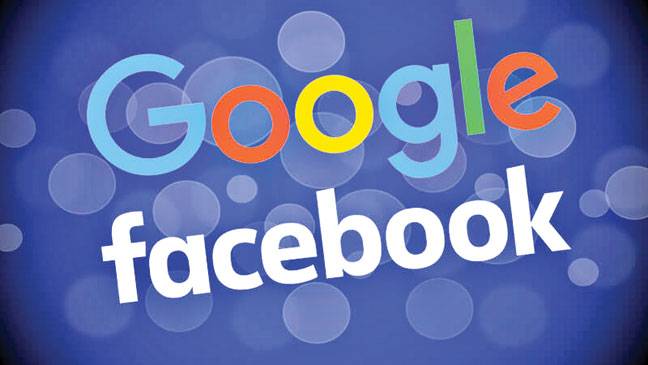STRASBOURG - The European Parliament on Wednesday approved a controversial EU copyright law that hands more power to news and record companies against internet giants like Google and Facebook.
Backing the draft were traditional media, in urgent search of income at a time when web users shun newspapers and television and advertising revenue is siphoned away by online platforms.
The dramatic vote in the French city of Strasbourg confirmed the European Union as Silicon Valley’s most powerful critic and follows anti-trust decisions that have cost Google and Apple billions.
Europe is also leading the political charge on protecting data privacy, and just ahead of the copyright vote warned web firms it could hold them responsible for terrorist propaganda. European lawmakers were sharply divided on the copyright issue, with both sides engaging in one of the biggest rounds of lobbying that the EU has ever seen. But, despite uncertainty ahead of the vote, MEPs meeting in Strasbourg ended up passing the draft law with 438 votes in favour, 226 against, and 39 abstentions.
The text MEPs settled on compromised on some of the ways news organisations will charge companies for links to content, with platforms free to use “a few words” of text, according to an amendment. It also slightly watered down a proposal for so-called upload filters that will make platforms - such as YouTube or Facebook - liable for copyright breaches and force them to automatically delete content by violators.
Social media should have 1 hour to remove terror propaganda: EU
The European Union proposed steps Wednesday to compel social media and websites to remove "terrorist" propaganda within an hour of receiving the order from authorities. If they do not, companies such as Facebook and Twitter will risk massive fines under the legislation mooted by European Commission President Jean-Claude Juncker.
Having long left it to internet firms to voluntarily remove problematic content, the move marks a toughening in Brussels' approach.
The internet has become a key tool for extremists carrying out attacks which have killed hundreds of people in European cities in recent years.
"Europeans rightly expect their Union to keep them safe," Juncker told the European Parliament in his annual state of the union speech. "This is why the Commission is today proposing new rules to get terrorist content off the web within one hour - the critical window in which the greatest damage is done."
The EU's executive arm said that in January alone, nearly 7,000 items of propaganda were disseminated online from the Islamic State group, even as it has been driven out of most of its strongholds in Iraq and Syria. The commission proposal calls for a "legally binding one-hour deadline" for firms to remove terror-related content once ordered to do so by national authorities.
The proposal targets content which incites or advocates people to commit terror offences, promotes a terror group's activities, or offers instructions for attacks. It also provides for judicial redress when a content provider disagrees with an order.
"Member States will have to put in place effective, proportionate and dissuasive penalties for not complying with orders to remove online terrorist content," the commission said.
"In the event of systematic failures to remove such content following removal orders, a service provider could face financial penalties of up to four percent of its global turnover for the last business year."
The regional office of the Computer and Communications Industry Association (CCIA), representing Google, Facebook, and others, warned the proposal would "disproportionately burden smaller European firms."
The move could also undermine free speech, possibly prompting the removal of entirely legal content for fear of being fined. The EU joined forces with US-based tech firms in 2016 to combat online extremism.
Until now, Brussels had pushed for the industry to regulate itself, but for more than a year, EU officials have had mixed reviews for the efforts of Facebook, Twitter, Microsoft and Google's YouTube.
"While we have made progress on removing terrorist content online through voluntary efforts, it has not been enough," EU Security Commissioner Julian King said in a statement.
"We need to prevent it from being uploaded and, where it does appear, ensure it is taken down as quickly as possible - before it can do serious damage."
Juncker on Wednesday also called for placing the fight against terror within the jurisdiction of the future European Public Prosecutor's Office.
The EPP is due to be launched by 2021, tasked with tackling cross-border fraud involving the EU budget and value-added tax.
"Terrorists do not recognise borders," Juncker said.






